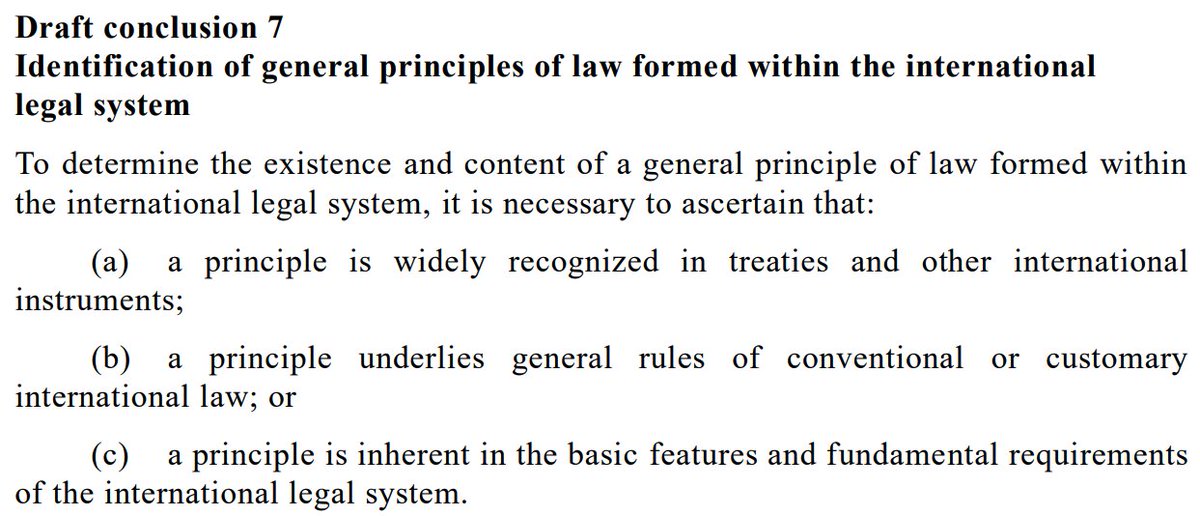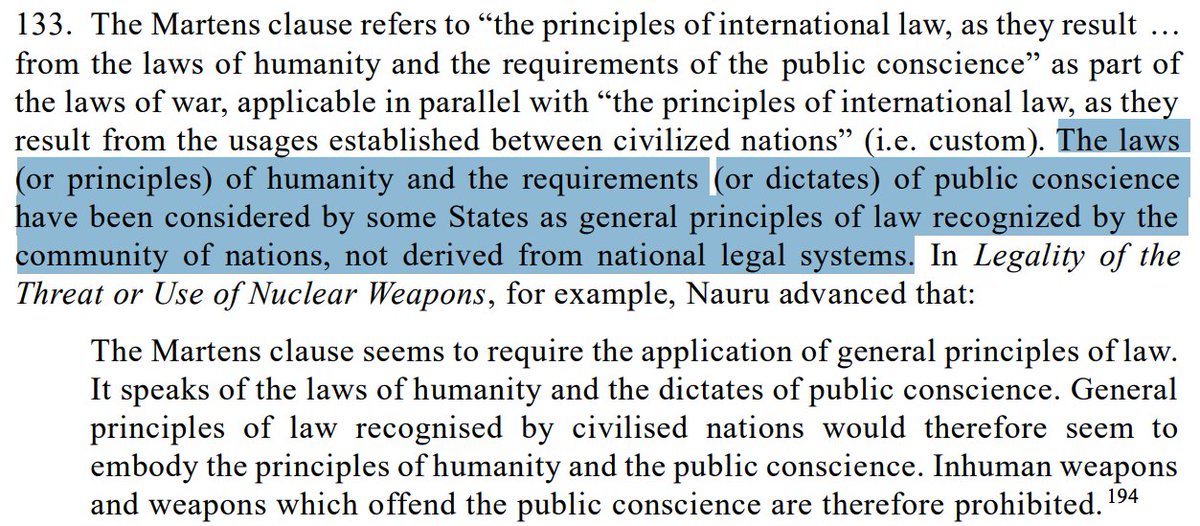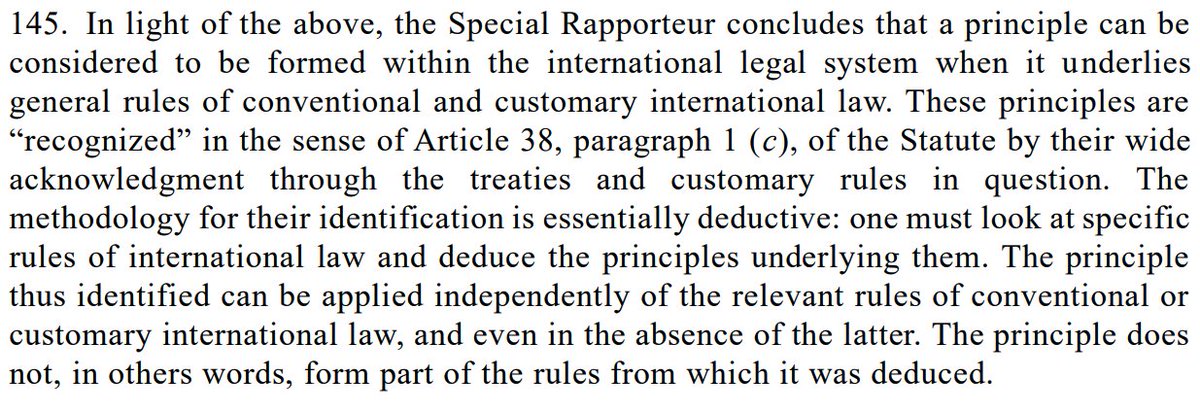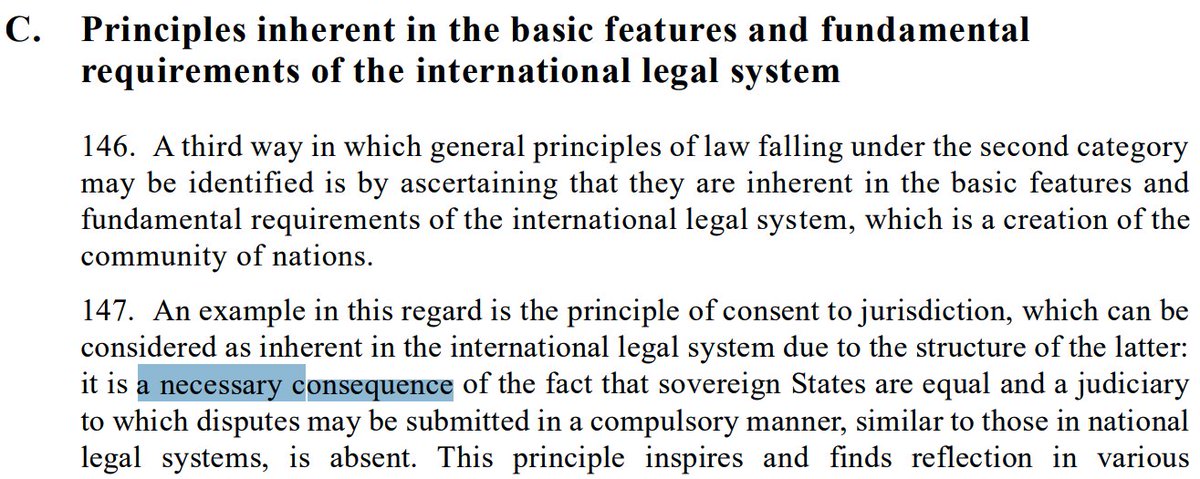I'm only half-joking. The U.S. and U.K. have signaled their opposition to the whole idea of general principles of law formed within the international legal system. Good for the Special Rapporteur for having the courage of their convictions. 2/
The content is also fascinating. States can recognize general principles through General Assembly resolutions. No need for 'instant custom'. 3/
Strikingly, the Nürnberg principles are general principles of law, not (or only later) custom. That's remarkable when you think about their substance: individual obligations, responsibility, and rights (to fair trial). 4/
Close to my heart, the SR appears to endorse the view that the Martens clause recognizes of general principles of law applicable in armed conflict, in addition to custom. 6/
The polluter-pays principle of international environmental law rounds out the section on "Principles widely recognized in treaties and other international instruments." 7/
The real fun begins in the next section, on "Principles underlying general rules of conventional or customary
international law." More on that later. 8/
international law." More on that later. 8/
The headline is that general principles can be formed and recognized without being expressly stated. So the method for identifying their existence and content is crucial. 9/
The SR calls this method "deductive," though it's better thought of as abductive (inference to the best explanation). 10/
Now, there is some ambiguity. Is recognition of a principle a kind of mental state, to be "inferred from" the rules it underlies? Or is recognition of a principle an act, of acknowledgment through treaty and customary practice? 11/
Fundamentally, do underlying principles exist, with their content, in the 'minds' of States prior to the rules? Or do these principles exist because they fit and justify the rules, giving them coherence and integrity?
In short: Hart or Dworkin? The ILC must pick a side! Jk. 12/
In short: Hart or Dworkin? The ILC must pick a side! Jk. 12/
The last category, "Principles inherent in ... the international legal system," raises similar questions. 13/
Is the view that States 'subjectively' recognize these principles, and their content, without expressing them? And we can infer their recognition by charitably assuming that States recognize the logical* implications of their commitments? 14/
Or is the view that States are bound by the logical* implications of their commitments, whether or not they 'subjectively' recognize them?
[Kelsen spins in grave] 15/
[Kelsen spins in grave] 15/
The "*" marks the lingering question: is it really logical necessity that's doing the work here, or some broader notion of normative (dare I suggest moral?) coherence? 16/
The best clue is para 168, which suggests that the 'underlying' and 'necessary consequence' relations are constitutive, not epistemic. They ground the existence and content of general principles. They're not just evidence. 17/
Finally, the SR gestures at a class of general principles that impose no obligations, and create no rights. These principles might be considered 'structural', though I like to think they're also 'characterizing' principles (a la Jeremy Waldron). 18/
That's it for now. Bottom line: I applaud the SR for taking a bold stance, backed by rich ideas, and I'll follow the debate with great interest. Hope you will too. 19/19

 Read on Twitter
Read on Twitter
















